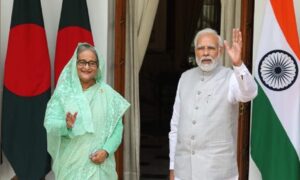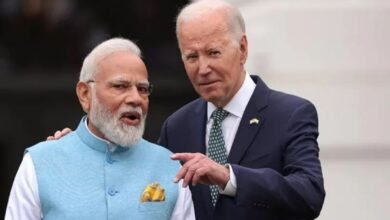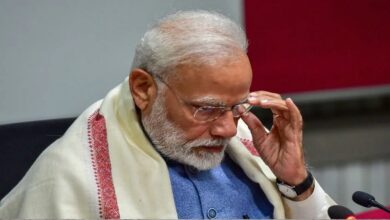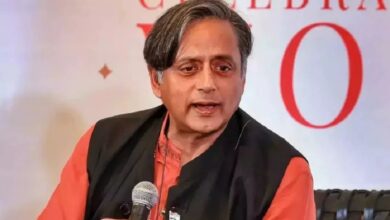Is India losing South Asian allies by harboring Sheikh Hasina?
The resignation of Bangladesh Prime Minister Sheikh Hasina, India’s close ally, has raised concerns about New Delhi’s ‘neighbourhood first’ policy. Due to this, China’s influence on South Asian countries may increase. Neelanti Samaranaike, an adjunct fellow at the East-West Center in Washington, said Hasina’s resignation has complicated India’s relations with smaller South Asian countries.
Samaranaik feels that she (Hasina) is the closest of all the neighboring statesmen to Delhi and has had a long-standing relationship with India. Hasina’s departure from the country could worsen regional relations. Bangladesh is now going through a reform process. It will take considerable time to complete that process before the elections, so the interim government will need India’s support.
India’s ‘neighbourhood first’ foreign policy launched by Prime Minister Narendra Modi in 2014 aimed at strengthening ties with regional countries in South Asia. Bangladesh Nationalist Party and Jamaat-e-Islami, one of Bangladesh’s political parties, have traditionally been closer to China and Pakistan than to India. China’s influence in Bangladesh is particularly strong in defense cooperation. In May, the People’s Liberation Army said it would conduct a joint military exercise with the Bangladesh Armed Forces. Bangladesh was the second largest recipient of Chinese arms exports after Pakistan from 2019 to 2023, accounting for about 11 percent.
After aiding Sri Lanka’s economic crisis in 2022, India blocked a Chinese renewable energy project and objected to Chinese research ships anchored in Sri Lanka, citing security concerns. But tensions flared when Modi revived a political row by claiming rights over the Kachathivu island ahead of India’s recent general election. which was handed over to Sri Lanka by the Congress Party of India in 1974. Maldivian President Mohamed Muijju who campaigned on an anti-India platform. After coming to power, he first expelled the Indian army from the country. Build a stronger relationship with China.
Nepal K.P. Sharma Oli, considered pro-China and previously at odds with India over territorial disputes, returned as prime minister. India’s relations with Afghanistan have also been tense since the Taliban came back to power in 2021.
Samaranaik said, despite these challenges, India’s relations with other small countries in South Asia are not too bad. Bhutan is closely allied with India. Although many criticized the Maldives’ domestic policy of ending foreign military presence and defense activities, the new government was willing to accept India’s civilian presence in a revised air security cooperation program.
As Samaranaike points out, Sri Lanka, like other small South Asian countries, faced a power imbalance with India and often considered itself vulnerable to India. Citing an example, Samaranaike said that Sri Lankan ports had the opportunity to anchor ships and collect revenue, only because of India’s concerns about Chinese ships, that activity had to be suspended for 12 months. Sri Lanka’s presidential election in September may give India’s ‘neighbourhood first’ policy another push. Because a possible victory of the left-wing NPP (National People’s Power Alliance) would throw Sri Lanka’s foreign policy orientation towards India, China and the United States into considerable uncertainty.
According to the State of Southeast Asia 2024 study published by Singapore’s ISEAS-Yusuf Ishaq Institute, India is one of the least strategically relevant partners in the Association of Southeast Asian Nations, while China is seen as the most influential economic, political and strategic power in the region. Only 0.6 percent of 1,994 respondents from 10 Southeast Asian countries surveyed from January to February said India is Southeast Asia’s most dominant economic power, compared with 59.5 percent for China.
Natasha Aggarwal, an economist and researcher in India, has argued that Delhi’s attitude towards its neighbors is marked by ‘arrogance’ when compared to rising global powers like China. Natasha suggests that India needs to adjust its Neighbor First policy to prevent China’s presence in the region. Given the economic clout of India and China, both independently and collectively, perhaps it is time for India to redefine its Neighbor First policy.
Win-win partnership
India’s neighborhood policy has been somewhat turbulent due to the recent unrest in Bangladesh, but it is likely to change and improve over time. Says Sriradha Dutta, Professor of Jindal School of International Affairs. Sri Radha urged Delhi to prioritize its national interests to maintain good relations in the region. He says, India should not deviate from the principle of neighbor first. That policy should be followed in any situation. Even under difficult circumstances, India has to see how well it can work with its neighbours. Even in good times, India needs to be aware of the challenges that may come from China.
Former diplomat Anil Trigunayat said the Neighbor First Policy was inconsistent in its content and application. India’s policy should aim at the growth, development and capacity building of its neighbours. India believes that it is in its own interest to strengthen relations with its neighbours. So that border areas are not used for anti-Indian activities like militancy and terrorism. It is a win-win partnership. Trigunayat, who previously served as First Secretary of Bangladesh from 1986 to 1990. He said, some preconceived notions among the current and possibly future leadership of Bangladesh may create a short-term negative attitude towards India. However, India’s bilateral relations with Dhaka are based on historical and cultural connections between the people of both countries. So any compromise will not last long. ‘
Professor Scott Lucas of the University of Birmingham emphasized that India’s regional position ultimately depends on its own stability and progress. So despite the regional changes, if India has a stable government and the country continues to improve politically, socially and economically, then the best opportunities will come back to you again.
Regional countries are still interested in working with India because of economic and trade imperatives, said Michael Kugelman, director of the South Asia Institute at the Wilson Center.
Kugelman thinks that if you look around the region, even with China’s growing influence and presence, there are still governments that are interested in balancing relations with China and India, and in many cases want to work closely with India.
Referring to the Maldives, Kugelman said the country has recently taken a more tolerant stance towards Delhi’s concerns and welcomed Indian Foreign Minister S Jaishankar’s visit over the weekend to “deepen” bilateral ties.
At the same time, Kugelman believes that the situation in Bangladesh may still present significant geopolitical challenges for India. But practical matters such as trade and water sharing can be a means of managing an effective relationship between the two.
Source South China Morning Post article





